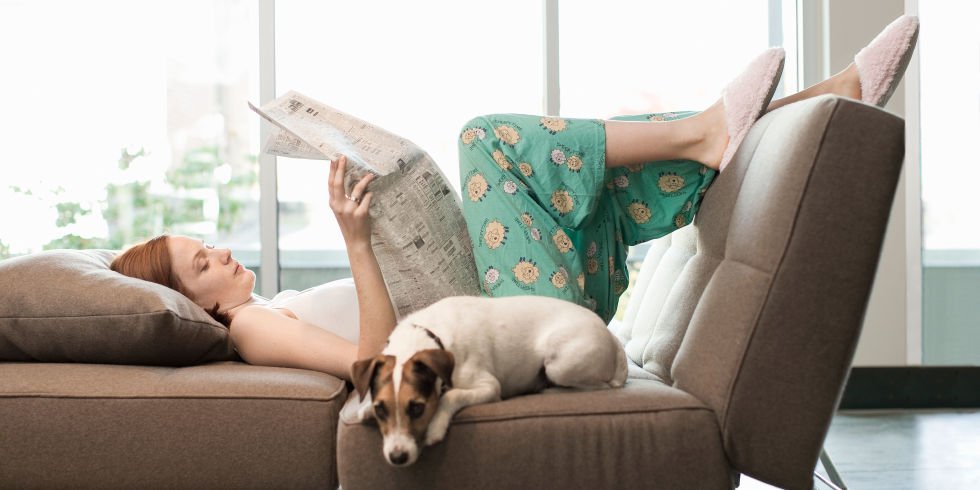
If you have an impending colonoscopy or endoscopy coming up, whether it’s your first or you’ve become more accustomed to them, it’s natural to be concerned and want to be as emotionally and physically prepared as possible.
What exactly is a colonoscopy and endoscopy?
During a colonoscopy, a narrow, flexible telescopic camera is inserted via the rectum in order to examine the bowel. “It can be used to detect irritated and swollen tissue, ulcers, or growths such as polyps,” says Dr Andrew Thornber, Chief Medical Officer at Now Healthcare Group. It also helps diagnose health conditions, including Crohn’s disease, ulcerative colitis, diverticular disease and bowel cancer.
An endoscopy, on the other hand, uses the same tool, but this time it is inserted via the mouth or nose to examine an organ or area of the body. “It’s frequently used in people who have persistent abdominal problems, difficulty swallowing, chest pains, unexplained weight loss, diarrhoea in stools and vomiting blood,” says Dr Andrew.
How to prepare for an upcoming oscopy
Whatever procedure you’re having, you’ll want to mentally and physically prepare yourself. Here are 11 ways to help you plan and prepare for an upcoming endoscopy or a colonoscopy…
1. Don’t spend time reading about possible diagnoses online
It’s more than tempting to self-diagnose your symptoms even before you’ve had the procedures and this just isn’t beneficial for you. Don’t play ‘Doctor Google’, advises Dr Andrew.
“Reading too much about your symptoms and possible causes can create stress and worry. So, try not to self-diagnose.”
2. Use relaxation techniques
“I think oscopies are naturally worrying for many people,” says Emma Soos, urology nurse and managing director at The Women’s Health Clinic. “The most important thing is to try not to get too worried about it.”
If you’re feeling anxious about having an oscopy, try some relaxation techniques as this can help calm your body and mind when you’re feeling overwhelmed and stressed out. Meditation can also help you relax, so why not try the Headspace app when you are travelling to work or before you sleep at night. Research from The Journal of Occupational Health Psychology shows daily mindfulness reduces anxiety and can help decrease rumination and fatigue by around 25%.

3. Follow the preparation given prior to your procedure
Quite often, this preparation is the most difficult part of the procedure, says Dr Riccardo Di Cuffa, a director and GP at Your Doctor.
“You won’t be able to eat or drink for at least 6 hours before an endoscopy or a colonoscopy. And a colonoscopy will require bowel preparation in the form of laxatives 1-2 days before the procedure. Quite often this preparation is the most difficult part of the procedure.”
This is really important – you don’t want to be turned away on the day because your bowels aren’t clear enough for the procedure.
4. Eat a bland diet
You can’t go wrong with a bland diet in the week leading up to the procedure, says Emma. This will help for whatever procedure you have.
“Laying off the greasy food a few days before will only make any preparation before the procedure more pleasant.”
5. Think about what you need to take
Maybe your glasses or an inhaler, if you’re asthmatic. Familiarise yourself with what will happen and the length of time (up to 45mins), so you’re well prepared mentally.
6. Bring a friend or family member with you
Asking someone to come along with you for moral support can be a real help, as well as driving you to and from your appointment. “You may feel light-headed afterwards and need someone to help you home,” says Dr Andrew.
7. Bring a change of underwear
In preparation for the procedure, make a list of things that you need to take with you that will make you feel better whilst you’re there. “A spare change of underwear and a wash kit will make you feel more ‘you’ after the procedure,” says Emma.
8. Prepare to be relaxed during your procedure
Before and during your procedure, focus on slow breathing because this can help your body relax. “Another good tip is to bring a pair of headphones,” says Emma.
“Some hospitals allow you to take them in during the procedure, so find some music that you find soothing and calming to relax with. Whilst you should be free to bring headphones, staff will be checking just how alert you are – so sleep masks and sunglasses aren’t recommended.”
9. Take some time off work
Your body has just been through a minor procedure – so arrange to take a day or two off work to rest as you may need time to recuperate. Dr Riccardo says:
“You will need some time off work prior to the procedure, but will normally be able to return within a couple of days.”
10. Stock up on peppermint tea
Expect to feel a bit windy afterwards, says Emma.
“Some air may be blown into the bowel to improve the view of the bowel lining, and whilst this is released as much as possible during the procedure, you will still feel the effects for a day or so after.”
Some peppermint tea might help to soothe this after the procedure. So make sure that you have all that you need to be as comfortable as possible when you come home.
[“source=netdoctor”]









